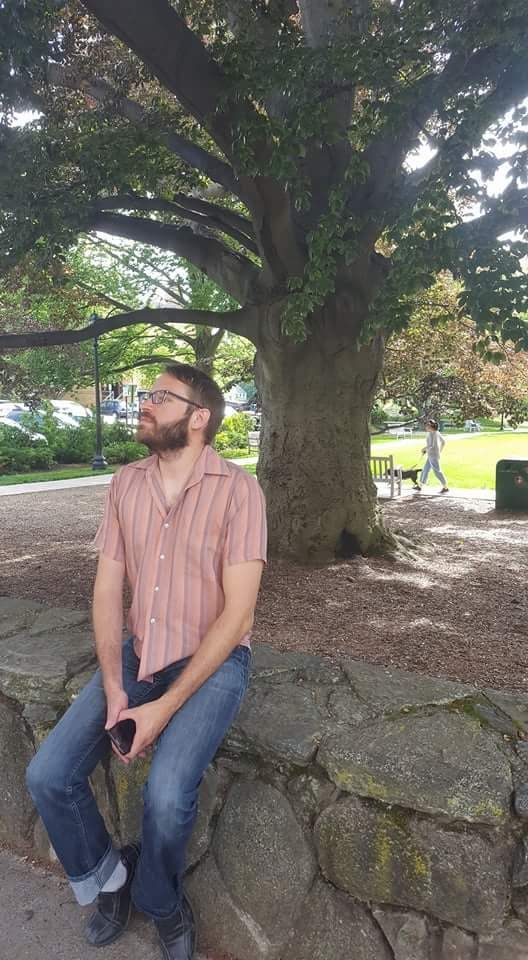QUI EST LE POÈTE?
David Capps is a philosophy professor and poet who lives in New Haven, CT. He is the author of four chapbooks: Poems from the First Voyage (The Nasiona Press, 2019), A Non-Grecian Non-Urn (Yavanika Press, 2019), Colossi (Kelsay Books, 2020), and Wheatfield with a Reaper (Akinoga Press, forthcoming). His latest work,
On the Great Duration of Life, a riff on Seneca’s On the Shortness of Life, is available from Schism Neuronics.
À PROPOS
«I created this work after mulling on the idea of just how bothered Schopenhauer confesses he was in his essay about noise whenever he heard someone whipping a horse; I couldn't help but wonder how impossible he would regard the present situation of noise in urban areas. I wondered how bad, in principle, it could become, and began to rethink a rather common strategy of conceptualizing the issue in terms of a conflict of freedom of expression, to think whether something like what I call a default right to silence might be defended.»
LA PIÈCE DE RÉSISTANCE
«Silence Divine, An Allegory is a humanistic piece. It really has nothing to do with the current trends (esp.in America) towards social or political ideology. In the piece I defend the intrinsic value of silence by offering a number of perspectives, some which relate to the sort of soulful silence present in the depths of the heart but also at the beginning of creation, and some which tie silence as a form of awareness to the place of human beings in the natural world.»
LE MYTHE
«I see Sisyphus as a sort of generalization of the Tantalus myth, where it isn't cycles of desire but any cycles, any habits at all that dull the edge of expectations and threaten living with a rather flat arc. But I am always drawing on mythology and cosmology, as in this piece where I provide a kind of interpretation of Genesis that explodes far beyond Genesis.»
ET L'ART, ALORS?
«In poetry/art, maybe Rembrandt, Van Gogh, Anne Carson, Alice Oswald, Sappho, Caravaggio, whoever was responsible for the Cycladic figurines, the list goes on! For this piece, I have to credit Nietzsche and Schopenhauer as stylists. Simone Weil for her distance from the divine.»



